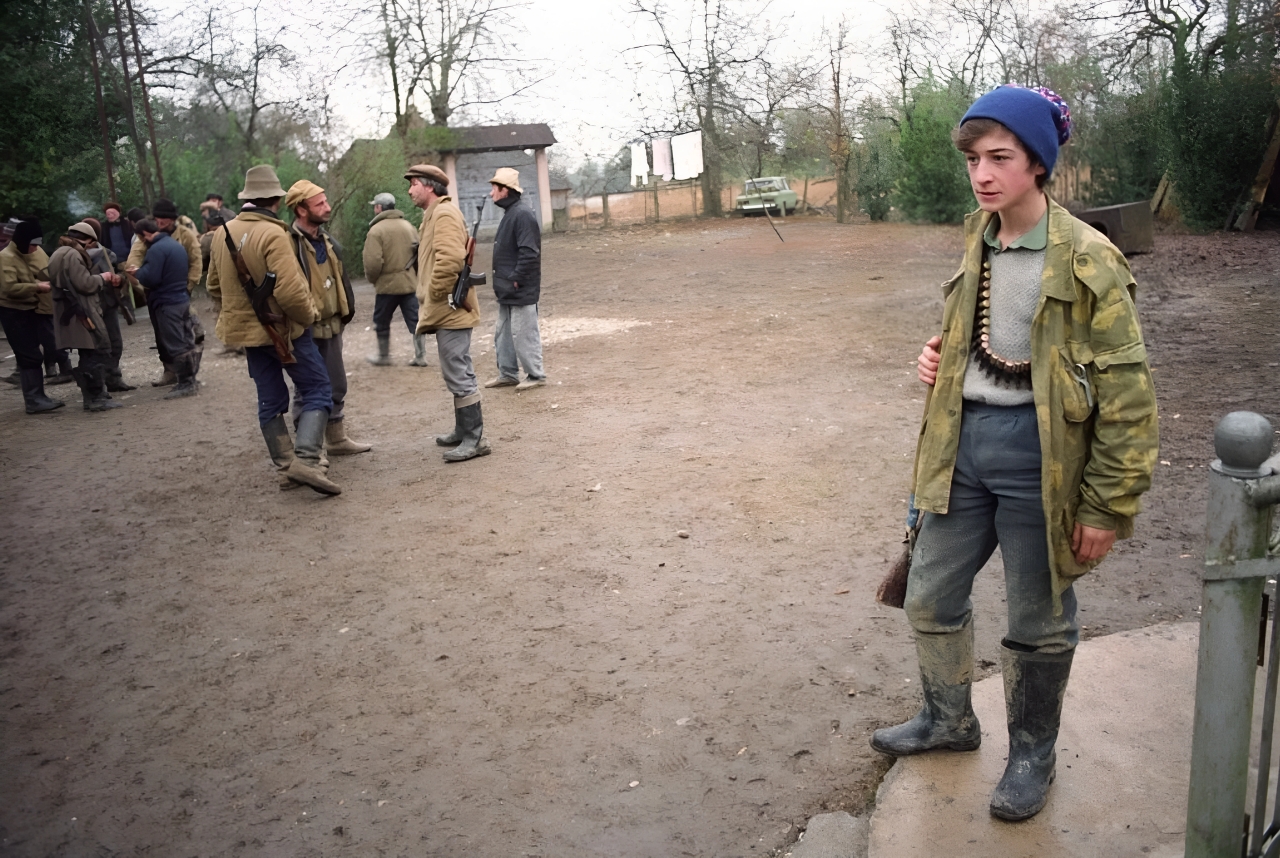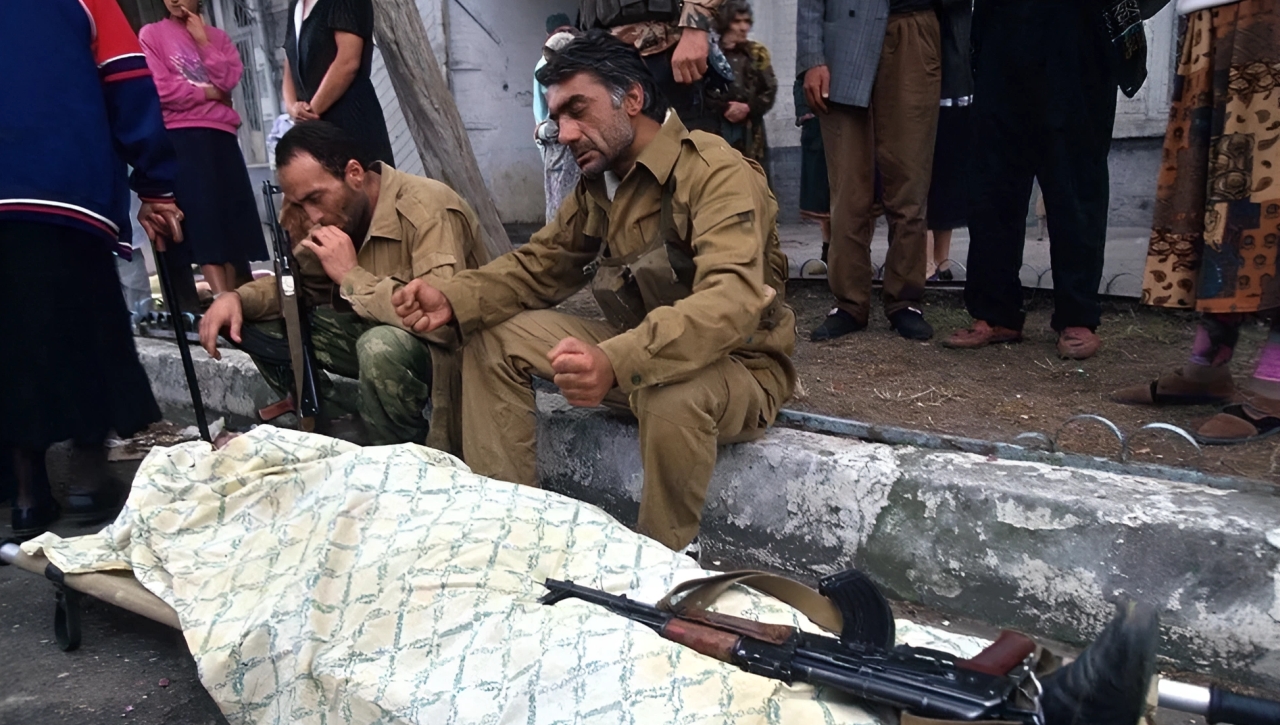Zaira Khiba
Linguist & Translator. United Kingdom.
On 13 August 1992 my family and I drove back to our home in Yorkshire from Kilmarnock, Sukhum’s twin-town at that time, where we had joined a visiting delegation from Abkhazia. The next day, the fateful 14 August, we drove down to London to visit members of the (Turkish-)Abkhazian community there. In the late afternoon in the house of one of our friends, while I was engaged in conversation in Abkhaz with our host, my husband George sat watching the news with the volume turned down. Suddenly, he asked us to be quiet and switch up the volume, because he recognised the pictures being broadcast of streets in Sukhum where men with guns were clearly engaged in fighting – the war had not only started but was already on the world’s TV-screens.
That night began the series of frequent phone calls to Moscow to ascertain news of the latest developments from Madina, daughter of Abkhazia’s war-leader and future first president, Vladislav G. Ardzinba.
But Madina was not our only source of information. The Abkhazian delegation’s interpreter in Kilmarnock had been Liana Kvarchelia, who had not flown straight back to Abkhazia but had chosen to spend some time with her sister in Moscow. The outbreak of war meant that she had to stay there much longer than planned. However, being in the Russian capital, she was an ideal voice for Abkhazia to the (particularly English-speaking) world after the establishment of Abkhazia’s Moscow-based press-centre. Faxes came thick and fast not only from this agency but also from the one later set up in Gudauta. All information thus received was passed (for the duration of the war and beyond) to a contact in the British Foreign Office’s Research Department and other interested parties.

Naturally, I was most concerned for members of my large family, most of whom lived in Ochamchira or Sukhum. At some (much later) stage we discovered that my family-home had been commandeered by a Kartvelian group led by a Svan. When they arrived, they asked my elderly mother, who was there with my older sister, who else was living in the house. She lied, saying: “There’s only me and my daughter.” They did not believe her and began a search. Now, one of my brothers was hiding in an outhouse behind a stack of fruit. Luck was on his side, for when the occupiers entered the outhouse and found that there was a Lada (Zhiguli) parked inside there, their joy was unconfined at the realisation that such a ‘trophy’ of war had fallen into their possession, and they searched no further. My brother then sneaked away and managed to make his way by following country-pathways to a safe area. As for my mother, she was eventually included in a population ‘swap’, ending up in the mining-town of T’qw’archal, where she remained under siege until the end of the war.
Over the 13 months of fighting as I was living on my nerves in a permanent state of worry, family-news trickled out, but it was only when we returned in the mid-90s that we discovered the details of the full horror of those dreadful months. Entering the family-home, we did not recognise any of the fittings, because all our furniture and belongings had been packed up and carried off to Georgia. Returning at the end of the war and finding the family-house still standing but bare, my brothers had had no option but to take furniture from the houses abandoned by local Kartvelian residents when they fled in panic across the Ingur frontier with Georgia before the Abkhazian fighters and their allies arrived, possibly intent on taking revenge for any assistance afforded to the invading troops.
Back in 1992, towards the end of July before leaving Abkhazia, which was palpably in a state of high tension, to return to the UK, George [Hewitt] had left some academic books already wrapped and addressed to be posted by my younger sister to Yorkshire as time allowed. Looking for them in the mid-90s he couldn’t find them and asked our immediate (Mingrelian) neighbour, who had stayed in Ochamchira during the war and who, having an Abkhazian husband, had seen no reason to flee, what had happened to them. “Well,” she said, “during the cold of winter fuel was needed for heating, and so, in addition to chopping down trees, anything combustible was burnt, including, I noticed, several books from your house…”
But (most) books can be replaced, lost lives cannot. Though, mercifully, none of my brothers was killed, three male cousins died. Two were shot in battle, but the third met a grizzlier end.
On the morning of Sunday 15 July 1989 when large numbers of Kartvelians (including prisoners from Zugdidi who had been deliberately set free and armed by nationalists in order to go and fight the Abkhazians) were heading along the highway from Gal in the direction of Sukhum, the head of the Gal District, Vakht’ang Q’olbaia, had rung his counterpart in Ochamchira, Abkhazia’s later 2nd president, Sergej Bagapsh, to warn him of the impending danger represented by the approaching convoy. Bagapsh and my cousin Tolik hurriedly managed to manoeuvre a tanker onto the bridge over the River Aaldzga (in Georgian Ghalidzga) just outside Ochamchira town and blew it up, thereby preventing the horde from crossing and perhaps starting their projected killing-spree in Ochamchira, where we were awoken by the sound of the explosion and some gunfire. Tolik’s part in this action was not forgotten. It seems that shortly after the start of the war, he was captured further along that same highway in the village of Tsagera. The story is that he was tortured and murdered by means of a Winnie Mandela “necklace”…
Аҧсны зхы акәызҵакәаз хашҭра рықәымзааит. Нагӡара ақәзааит Аҧсны ахьыҧшымра!
![Abkhazia: [14 August] 1992-2022](/images/banners/logo.png#joomlaImage://local-images/banners/logo.png?width=40&height=33)
